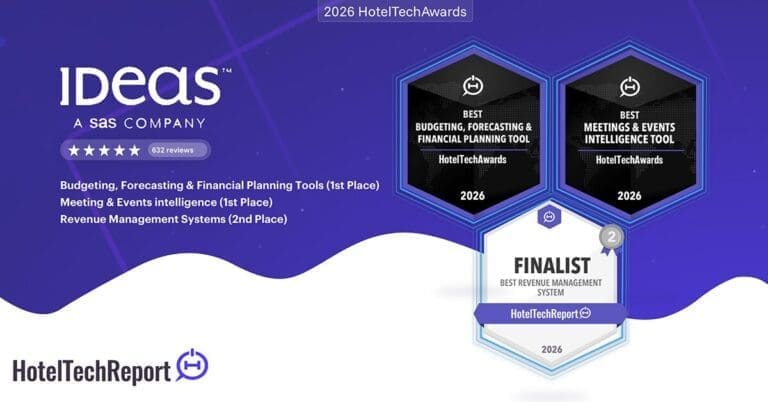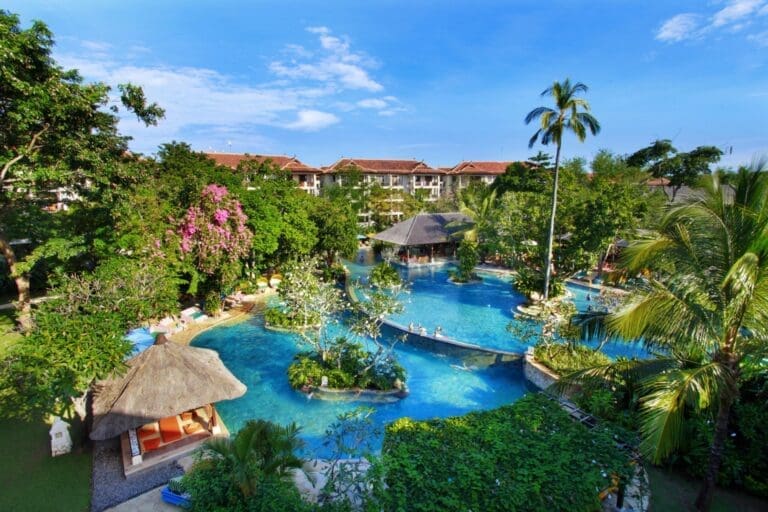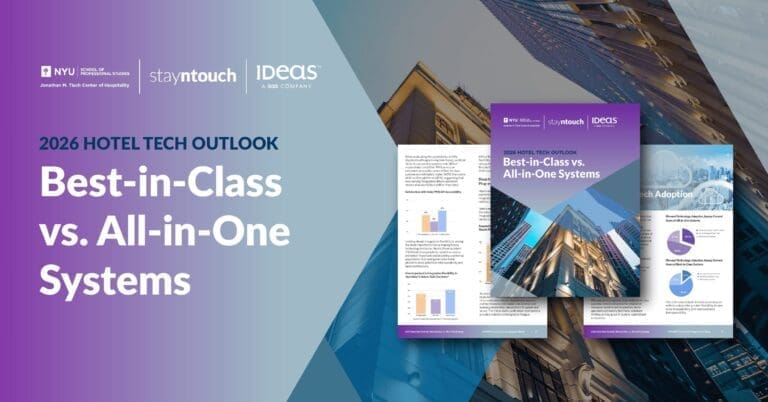In an effort to better understand and prepare for the lasting impact COVID-19 will have on the hotel industry, particularly in regard to revenue management and its expanding role in the commercial area, I’ve tapped into a series of experts in the field to pulse their sentiment.

Patrick Wimble is a highly experienced leader in the hospitality sector with over 25 years of multi-industry and multi-geographical experience. He has led and worked with high-performing commercial teams across Europe, the Middle East and Asia before founding Lightbulb Consulting in 2016.
From implementing new hotel opening strategies to leading organizational change management initiatives, Wimble is an outstanding hospitality industry strategist and commercial performance expert.
Question 1: When we look at the discipline of revenue management and the role of revenue managers before COVID-19, why were they struggling in securing a leading spot in the commercial area?
Patrick Wimble (PW): I am reminded of a conversation I had with a general manager (GM) in the Middle East many years ago. I asked him how he felt his revenue manager was getting on and what his development areas were. He told me, “I like him. He is a super smart guy, but I have no idea what he does! But it seems to be working as we are doing well!” I’ve had similar conversations with operations leaders across the industry, and I think it highlights a common issue.
In many cases revenue managers were their own worst enemies. They believed the hype about how “black box” and unknowable their work was and actively encouraged the belief that knowledge equalled power. If a GM then thinks their revenue manager is just “the numbers guru,” it automatically leads to them being pigeonholed into that role. This is not a senior role; it’s a glorified analyst, and GMs then rely on their directors of sales and marketing to make commercial decisions. This could be seen most obviously in titles of these two commercial leaders. Sales and marketing leaders were called “directors,” revenue leaders, “managers.”
Fast forward a few years and the legacy of this still lingers. Revenue managers often are comfortable with their numbers and analysis and less comfortable in using that knowledge to actively challenge their business to think differently. I remember running a total revenue management workshop a few years ago, and we were talking about how as a revenue leader, we might start a conversation with an executive chef or food and beverage director about how they could support them on their menu engineering. The silence in the room was deafening! In most cases they had never done this and struggled to see how it would end in anything other than—in the words of one revenue manager—being chased out of the chef’s office!
I am generalising here, of course, but quite simply: you can be the best number cruncher in the hotel, but if you cannot communicate your message effectively, you will fail as a revenue leader.
Question 2: Will the pandemic threaten the existence of revenue managers and the revenue management discipline as such, or will it offer a unique opportunity to gain the position they’ve sought for so long?
PW: I think this pandemic could be the revenue leader’s finest hour, the time for them to really come to the fore and lead the commercial thinking across the business. This will depend on two critical factors—developing our impact and influence skills and the ability to rise above the minutiae and think strategically.
First, if you are a revenue leader reading this, ask yourself honestly—does any of the above resonate with me? Does it describe me in any way? Do I often have good ideas, but they get shot down by the rest of the senior team? How do I communicate those ideas to the decision makers? For example, if you have a great idea that might be a little controversial, do you simply bring it up at the revenue meeting and hope for the best? If so, it is likely to be shot down as you haven’t given people the opportunity to process it, so their default might be to play it safe. But, if you socialized this with the GM and other senior colleagues beforehand (in person, not by email), you would understand any concerns they have, address these, and potentially turn up at the revenue meeting with a number of cheerleaders for your idea. Impact and influence skills are going to be key in positioning revenue managers as the go-to leaders for this recovery effort.
Second, revenue leaders should use this time to review where they spent their time in the past. If it was predominantly reactive (i.e., doing analysis, writing reports, creating forecasts, responding to data analysis questions), ask yourself why. Was it because you felt most comfortable doing this? Or was it because you allowed it to happen? Whatever the reason, the pandemic is a great opportunity to change this with some deliberate action.
My suggestion to change this has three elements:
- If you have one, your revenue management system isn’t useless now, it simply needs to be retrained. For example, if, as you reopen, you are taking different segments at different price points, make sure your system knows this. These might be your best estimation but will allow your revenue management system to react best as bookings start to materialize.
- Use this time to look at what you can dump or change. For example, was there a report you did that no one read, but you produced every week regardless? Was the revenue meeting getting stale with decreased engagement and action? Why?
- Getting rid of the things we have always done, but add little value, frees up time to focus on the third element: lead the commercial change your hotel needs. This change is, by definition, strategic, which is where I believe great revenue leaders should be spending the majority of their time. Helping set the direction of the hotel should be a collaborative process but should be led by insight, something revenue leaders are perfectly placed to provide. It will stretch a great revenue leader’s impact and influence skills, their communication abilities and most importantly, their ability to bring others on the journey with them and keep them motivated when times get tough.
Question 3: Will the commercial structure in the hospitality industry change after COVID-19 and if so, how?
PW: Right now, GMs have two things keeping them up at night—cash flow and cost control. I think this will, inevitably, lead to commercial structure changes.
I believe we will start to see the rise of a single, senior commercial leader with a breadth of revenue, sales, marketing and distribution experience. Certain hotel companies have had these positions in place pre-COVID (think director business development, commercial director, etc.) but these tended to come from a sales background.
In the future, these roles will more likely be filled by leaders who demonstrate broader leadership skills, the ability to drive action from insight and rely less on their own functional expertise. That functional expertise will come from their teams, with a revenue analyst/revenue manager/systems expert role in place. With direct and OTA bookings increasing, more distribution and marketing expertise will also be needed.
These changes are not the death knell for revenue leadership. In fact, good revenue leaders will be perfectly placed to fill these positions. The question is, are “traditional” revenue managers willing to broaden their experience and leadership skills to step into these roles?
By: Damiano Zennaro – Head of Advisory Services, EMEA, IDeaS Revenue Solutions

As IDeaS’ head of Advisory Services in the EMEA region, Damiano Zennaro is a firm advocate for the power of positive, meaningful and strategic transformations. He’s made it his mission to push the boundaries of revenue science into new verticals while supporting the ongoing success of IDeaS’ existing clients. Always looking ahead, he believes in the importance of proactively embracing change with trusted partners by your side.
Before joining IDeaS in 2019, Zennaro spent 16 years with InterContinental Hotels, most recently as director of revenue leading a large team of revenue managers across Europe where he oversaw initiatives that achieved significant RevPAR uplift. Born in Venice, he has lived in several European countries such as The Netherlands and Spain and is fluent in five languages. He is currently based out of IDeaS’ Italian office in Milan and serves as a driving force across the entire EMEA region. Ever the adventurer, Damiano is an avid reader, swimmer, hiker and mushroom forager.123

















